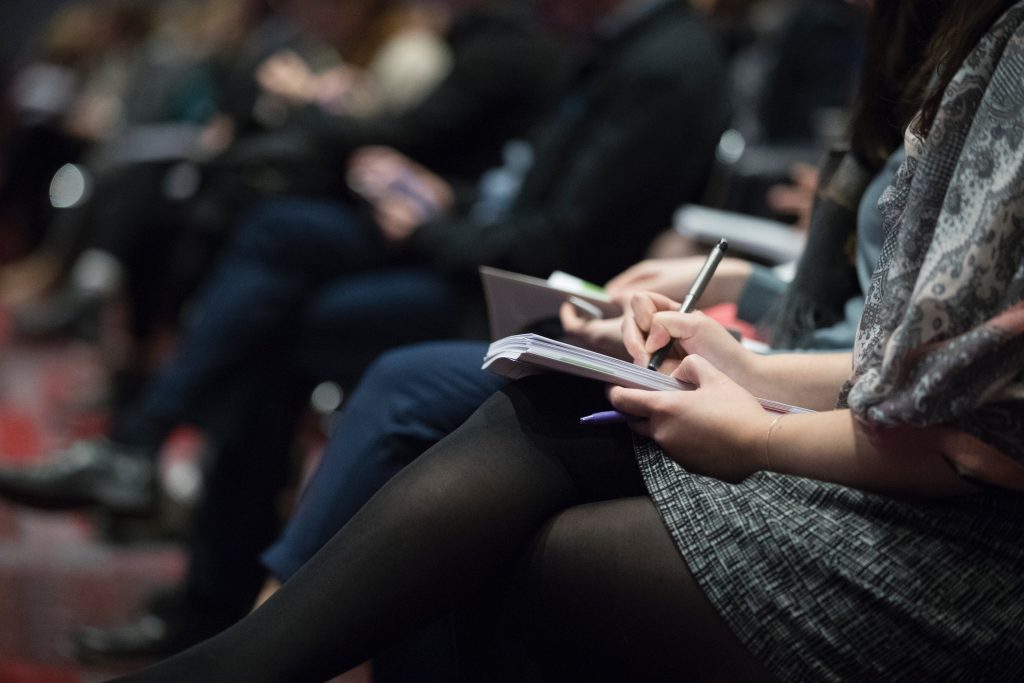 It’s not a new trope—the on-screen female journalist uses whatever means necessary, including her body, to get the story, or she doesn’t record an interview (apparently, she can remember it all!), or she floats from source to source without any plan for a final story. While it might make for dramatic TV, it’s an inaccurate depiction of both the ethical code and process of journalism.
It’s not a new trope—the on-screen female journalist uses whatever means necessary, including her body, to get the story, or she doesn’t record an interview (apparently, she can remember it all!), or she floats from source to source without any plan for a final story. While it might make for dramatic TV, it’s an inaccurate depiction of both the ethical code and process of journalism.
Richard Jewell, a 2019 film directed by Clint Eastwood, is the most recent narrative to fall prey to this trope. In the movie, Olivia Wilde plays the late, real-life reporter Kathy Scruggs, showing her sleeping with a source in exchange for information. Both Eastwood and Wilde have defended the decision to include the plotline, while Kevin Riley, the editor of the Atlanta Journal-Constitution where Scruggs actually worked, stated there was no evidence for the exchange happening that way and expressed his disgust with the film for using a “sexual stereotype to attack the media.”
Sophie Gilbert, staff writer at The Atlantic, wrote about on-screen portrayals in 2018 in an article called “The Lazy Trope of the Unethical Female Journalist.” In a recent interview, she spoke to the Center for Journalism Ethics about Hollywood’s inaccurate take on female journalists and how real-life reporters can and should challenge these depictions.
Do you see a connection between the public’s low trust in the media and TV and movie portrayals such as these?
The low trust in media is a complicated thing that I’d argue is more directly related to things like the decimation of local media, the rise of opinion news platforms, and the 21st century shift to a media landscape where pageviews are a significant factor. That said, I don’t think portrayals of female journalists that show them trading sex for stories help. I’m more concerned about how they affect the ability of women in the field to actually do their job, and whether they put those women at risk because people unused to working with journalists have a false perception in their head of what that process involves.
When did you first notice the disconnect between female reporters in real life and the ones on TV?
That’s a good question. I think it was when “House of Cards” debuted on Netflix. Its portrayals of female journalists were just so ludicrous, and so egregious, even for such a consciously over-the-top show. There was a minor furor at the time, but not nearly at the level that there would be now, at a time where so many journalists are on social media. When I started researching the trope for the story I wrote in 2018, I realized how long it had been going on, and how absurdly prevalent it was.
Why do you think ‘sleeping with sources’ is such a popular trope onscreen?
I think it’s because Hollywood naturally gravitates to the most sensational kinds of stories for movies and TV, for lots of obvious reasons. And the easiest way to make a story exciting is to add sex or action or violence. I also think it’s kind of a self-affirming thing—the more it happens, the more it’s going to happen, unless it’s called out, because writers and producers also tend to be drawn to the same storytelling elements over and over.
How do we as journalists help change and challenge this narrative? How do we show people what journalism and its code of ethics really is? How do we present the image you evoke in your article of “visibly tired, multitasking women working relentlessly because they know the stories they’re reporting are stories that need telling”?
I think we call it out, every time we see it. We make a fuss, and we let writers, directors, and actors know that this is a toxic trope in storytelling that bears no similarity whatsoever to the reality of the job. One problem is that journalists shouldn’t be, and shouldn’t want to be, part of the story. Most people get into this job because they want to tell other people’s stories, not their own. And that creates a paradox where the reality of the job isn’t then communicated to people outside the industry. That said, whenever real stories about the process of journalism are told onscreen (I’m thinking of Spotlight or in book form “She Said”) they tend to be thrilling and propulsive, so I’m hopeful they can make a small difference.
The Center for Journalism Ethics encourages the highest standards in journalism ethics worldwide. We foster vigorous debate about ethical practices in journalism and provide a resource for producers, consumers and students of journalism. Sign up for our quarterly newsletter here.
